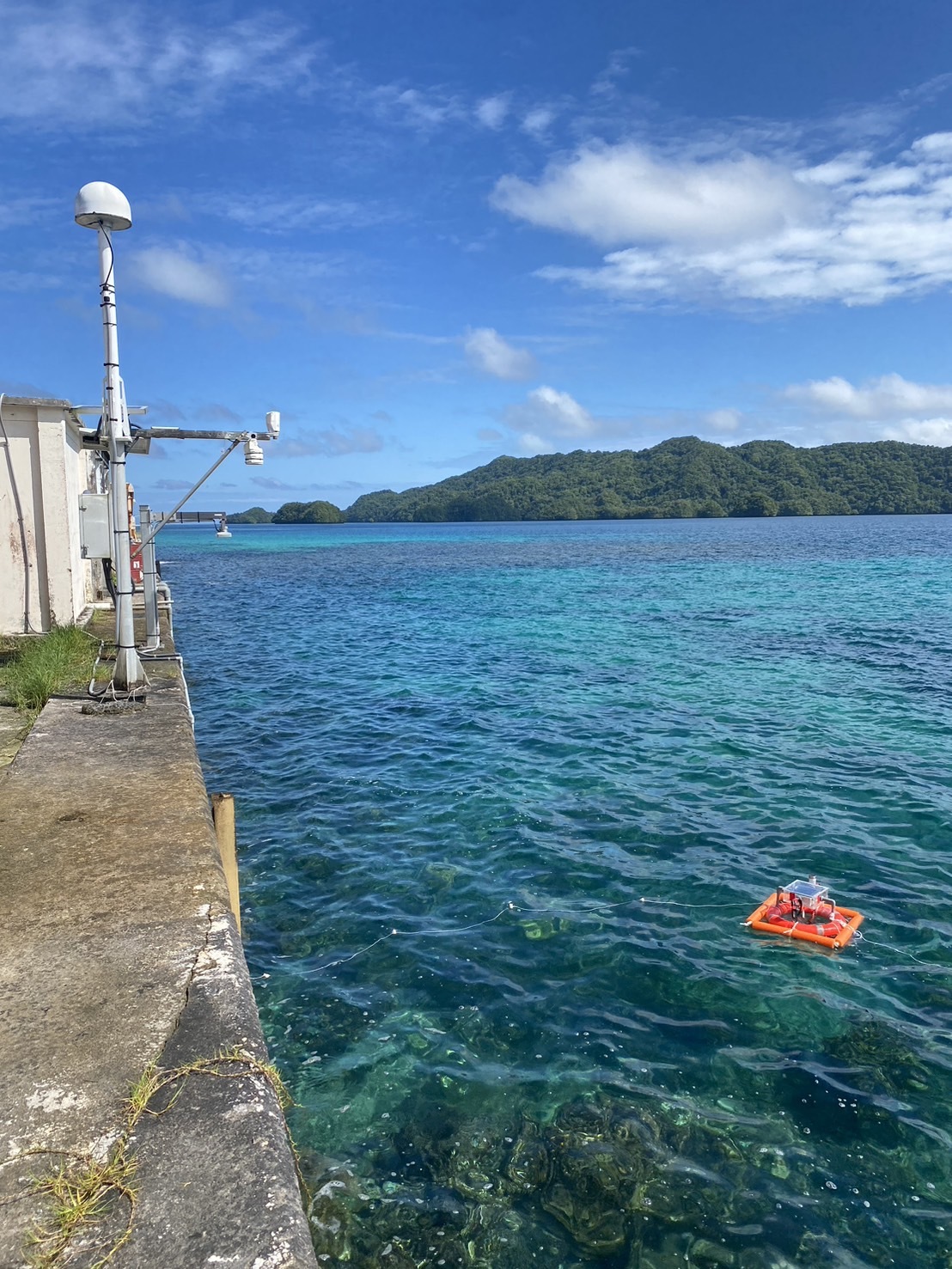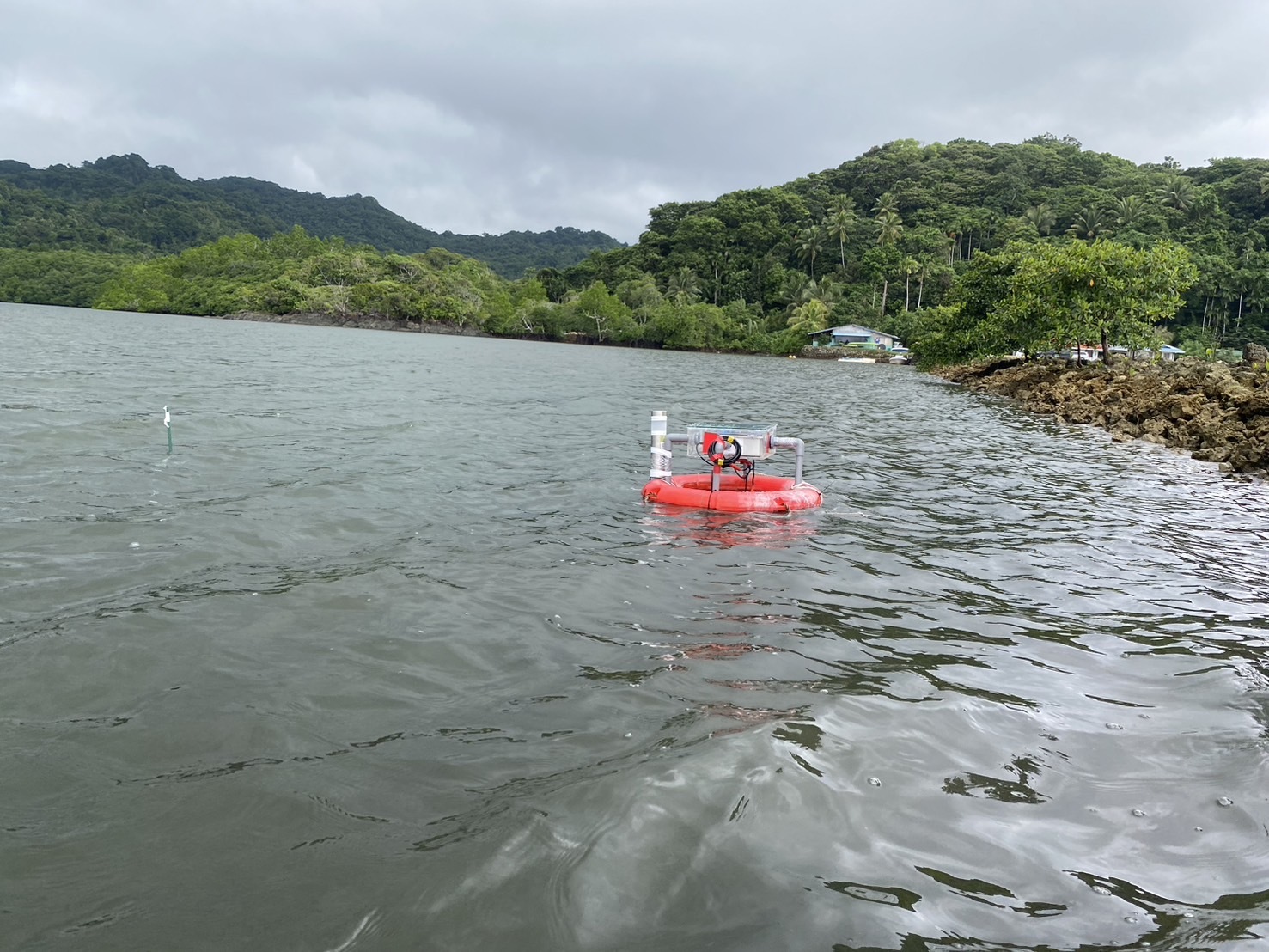ABOUT
Palau, located in the western Pacific Ocean, is a maritime nation with vast and rich marine resources, which are crucial to its national wealth and ecosystem. However, with environmental changes and increased human activities, Palau's marine life is facing unprecedented challenges. Additionally, like all island nations, Palau has extensive economic maritime zones and abundant marine blue carbon resources. The public is unfamiliar with these new terms and unaware of their economic value. In this context, marine science education becomes a vital part of Palau's sustainable ocean development.
The "Taiwan-Palau Ocean Science Education Center," established in April 2024 with support from the National Science and Technology Council (NSTC), will regularly conduct practical outdoor teaching demonstrations for the Palauan public, governmental marine departments, research centers, and natural science teachers in schools. Long-term hydrological observation stations will be set up in Ngchesar and Koror states, where marine environmental parameters will be collected, and practical courses conducted during periods of extreme rainfall or heatwaves to observe the effects of extreme weather on marine life. The center will also collect indigenous marine knowledge from Palau to understand how Palau uses modern technology to preserve its traditional wisdom, and establish a Palauan indigenous knowledge database through NSTC's deep learning technology. It is believed that these foundational marine education efforts in Palau will not only enable Palau to sustainably manage its critical marine natural assets using scientific methods but will also write a new chapter in Taiwan's marine science diplomacy, strengthening the solid diplomatic relationship between Taiwan and Palau.

Fig: The opening ceremony of the center held at Palau Community College, attended by Palauan President Surangel Whipps Jr., NSTC Deputy Minister Lin Min-tsung, ROC Ambassador to Palau Jessica Lee, Palau Community College President Dr. Patrick Tellei, along with other government officials, scholars, and numerous representatives from marine-related NGOs.
The objectives of our center are as follows:
-
By establishing the Taiwan-Palau Marine Science Center, we aim to regularly conduct practical outdoor teaching demonstrations for the Palauan public, government maritime departments, research centers, and natural science teachers in schools.

-
Establish long-term hydrological observation stations in Ngchesar and Koror State to teach how to maintain these real-time data and conduct practical courses on collecting marine environmental parameters during extreme rainfall or heatwave periods, observing the impact of extreme weather on marine life.



Buoy at Koror state Buoy at Ngchesar state
- Arrange interviews with Palauan indigenous people to understand their accumulated wisdom and how to use modern technology to preserve Palau's traditional knowledge. Through the use of deep learning technologies from other departments of the National Science Council, we aim to establish a Palauan indigenous knowledge database.
We believe that the deep-rooted marine science education in Palau will not only enable Palau to sustainably manage its important marine natural assets using scientific methods but also write a new chapter in Taiwan's marine science diplomacy, establishing a strong diplomatic relationship between Taiwan and Palau.
